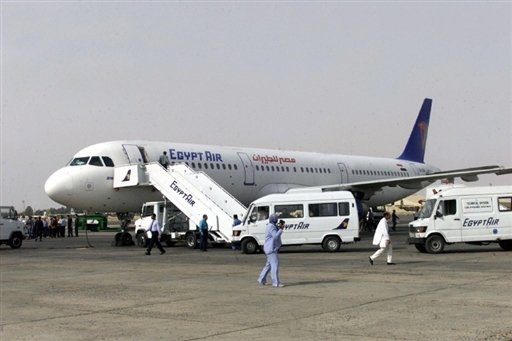BAGHDAD: A 100-day deadline set by Iraqi Prime Minister Nuri Al-Maliki for his cabinet to shape up expires Tuesday, though the premier has pulled back from the threat of dismissals if improvements are not made.
Though signs of progress are visible, from road construction projects to sewage system upgrades, little in the way of landmark laws have been passed, key issues remain unresolved and protests have already been called for Friday.
Maliki had set the timetable on February 27, noting that reviews would be carried out based on ministerial performance over the ensuing 100 days and warning that "changes will be made" based on those assessments.
But the day before the deadline was set to expire; he signaled no top politicians would be dismissed for poor performance, insisting his remarks had been misunderstood.
"There are those who want to confuse the concept of this initiative," Maliki said in comments broadcast on Iraqiya state television Monday evening.
"We think that they want to push people to force ministers to be accountable for a few things that naturally should take more time."
Newspapers have insisted, however, that the government must show concrete progress, with the independent Al-Alam daily noting in an editorial: "The government of Mr. Al-Maliki obliged itself to these 100 days."
"Therefore, after the end of the 100 days, it must provide real and tangible achievements for the public, and not only give slogans and speeches, and must stop talk of fake achievements, or even to ask for a new 100 days."
Maliki issued the 100-day warning amid widespread protests across Iraq over poor basic services, high unemployment and rampant corruption, in some of the biggest rallies since the fall of dictator Saddam Hussein in 2003.
At the time, it was seen as an effort to galvanize his cabinet, after Iraq had languished without a new government for more than nine months following March 2010 elections.
But on Monday evening, Maliki said ministries were "accomplishing what they can accomplish."
"The 100-day project created new initiatives to address short-term issues," he added, noting that meetings would be held from Tuesday and broadcast live on television so ministers could explain what they had accomplished, what they wanted to do, and what obstacles remained.
In any event, firing ministers would be politically difficult for Maliki, who heads a fragile national unity government with all of Iraq’s main political blocs, according to analysts.
"No matter how incompetent a minister being fired may be, it will be interpreted as a political move by the party to whom the fired minister belongs," Marina Ottaway, director of the Middle East Program at the Carnegie Endowment for International Peace in Washington, told AFP last week.
Protests have already been planned for Friday, with a group set up on social networking website Facebook called "Great Iraqi Revolution"
drawing 35,000 members and urging supporters to take to the streets.
Other similar groups drew thousands of users, though it was impossible to verify how many were inside Iraq.
In response to the February rallies, Iraq re-routed $900 million originally earmarked to buy fighter planes to food for the poor, reserved $400 million for generator fuel to power air conditioners over the hot summer, and started projects that showed visible change such as the roadwork and sewage repairs.
But key questions have not been addressed.
These include the future status of the 45,000 US troops left in Iraq, the disputed oil-rich province of Kirkuk, and efforts to diversify Iraq’s economy away from crude oil, which accounts for two-thirds of revenues but just one percent of jobs.
Maliki’s government also remains incomplete, 16 months after elections, with the ministers of interior, defense and national security still vacant posts which are being manned by the premier on an interim basis.
